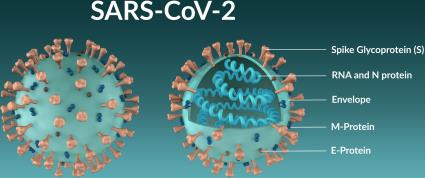 The B.1.525 variant that was detected in December 2020 in the U.K. and Nigeria is now present in 11 other nations including the U.S., Australia and in the E.U.
The B.1.525 variant that was detected in December 2020 in the U.K. and Nigeria is now present in 11 other nations including the U.S., Australia and in the E.U.
The B.1.525 lineage includes a number of mutations involving the spike protein with a specific change designated E484K (colloquially referred to as ‘EEEK’!). This mutation is also common to the South African B.1.351 and the Brazilian P.1 variants and is similar to the now dominant B.1.1.7 variant responsible for extensive transmission in the U.K. According to preliminary studies, the B.1.525 variant may be more transmissible and may express greater pathogenicity compared to the 2019 conventional strain.
 Evidence from South Africa and Brazil suggests that B.1.525 in common with B.1.351 may be able to evade antibodies against the SARS-Cov-2 conventional strain. Accordingly both Moderna and Pfizer are working on modifications to their vaccines to immunize against the E484K mutation. It is emerging that as with other coronaviruses, variants will continually emerge in susceptible populations. Accordingly annual or semi-annual booster vaccinations may be required for high-risk demographics or for more general administration.
Evidence from South Africa and Brazil suggests that B.1.525 in common with B.1.351 may be able to evade antibodies against the SARS-Cov-2 conventional strain. Accordingly both Moderna and Pfizer are working on modifications to their vaccines to immunize against the E484K mutation. It is emerging that as with other coronaviruses, variants will continually emerge in susceptible populations. Accordingly annual or semi-annual booster vaccinations may be required for high-risk demographics or for more general administration.